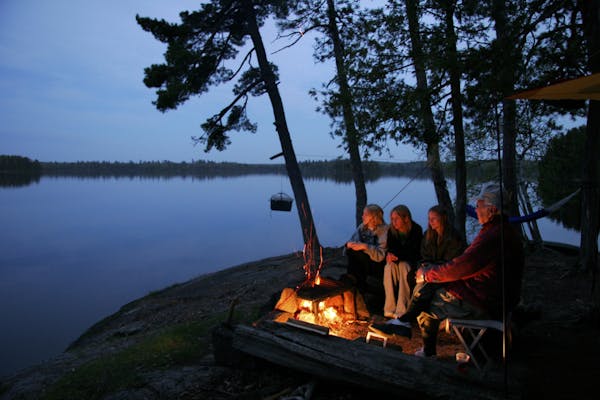Counterpoint
As legislators closely involved with school trust land issues, we felt a response was needed to the July 16 editorial "Scrutiny needed on BWCA swap."
Lost in the debate over the land exchange involving the Boundary Waters Canoe Area is the simple fact that the 93,000 acres of school trust land locked inside the BWCA properly belong to the schoolchildren of Minnesota. They do not belong to the mining or timber industries, nor to environmental or conservation groups. Like all such land, they were set aside in a trust for the benefit of public education through a deal that we the people of Minnesota made with the federal government in joining the union of states in 1858.
The purpose of the exchange approved by the state this year -- and now being considered by Congress -- is to right a wrong that has existed for far too long and that has denied our public schools a piece of their rightful inheritance. This does not mean that good or tough questions should not be asked; the Star Tribune Editorial Board wrongly assumes that the Legislature has not been closely involved in this matter.
In addition, the editorial downplays the potential contribution of these lands to school funding, but the size of the contribution is immaterial to the question of whether we have a legal and moral obligation to maximize the economic returns of a legal fiduciary trust. It matters not whether the land generates just $1 per student or $100. The money generated, regardless of its amount, is properly owed for the benefit of public education.
To that end, it is our fiduciary responsibility to maximize economic returns from all of our school trust lands through proper management and planning, and in the recent session of the Legislature, we passed a bill to help do just that. We will not pretend that the trust lands can wholly fund education, but we would also challenge the notion that even a small increase in new revenues to our public schools is not desired.
To be fair, concerns over mining, logging or other economic development of these lands should not be overlooked. A properly managed trust will, by its nature, be conservationist, balancing the interests of the current generation with those of future generations. While the trust has an obligation to generate an economic return, it must do so within the bounds of state laws that help protect the environment and preserve our natural resources.
The trust is intended to be enduring. That is why the revenue generated is deposited into a permanent fund from which only the dividends are distributed to the schools. To benefit that enduring trust, the time has come to resolve the issue of these 93,000 acres that currently are providing no income to the permanent school fund.
---------------------------
Tim O'Driscoll, R-Sartell, and Denise Dittrich, DFL-Champlin, are members of the Minnesota House.

The little park that could … be better
Climate change looms large this election year
For this Minnesota legislator, action targeting child abuse is intensely personal


